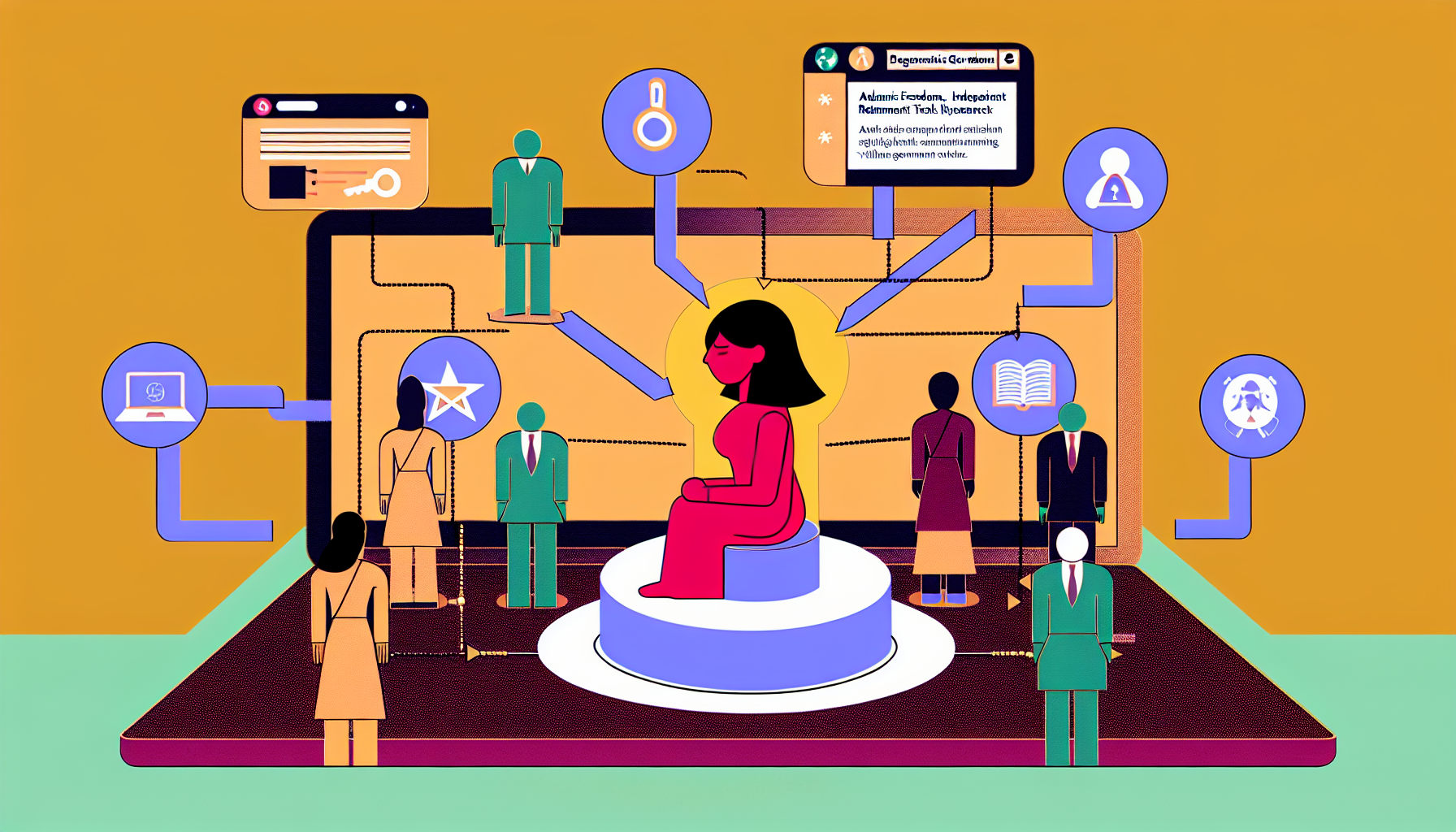[Disclaimer] This article is reconstructed based on information from external sources. Please verify the original source before referring to this content.
News Summary
The following content was published online. A translated summary is presented below. See the source for details.
A decade of progress in digital rights faces new challenges as governments increasingly use technology and travel restrictions to silence critics. Global Voices reports on the case of a Danish anthropologist who was denied entry to Kazakhstan for criticizing China’s repression of the Uyghur minority. This incident illustrates how digital criticism can now have real-world consequences, including travel bans and diplomatic pressure. Over the past ten years, while big tech companies have made some improvements in protecting user rights and data privacy, new forms of digital oppression have emerged. Governments are becoming more sophisticated in using both digital surveillance and traditional diplomatic tools to silence researchers, journalists, and activists who criticize human rights violations online. The case demonstrates how authoritarian governments can coordinate efforts to punish critics, even when they are citizens of democratic countries. This trend raises serious questions about academic freedom, freedom of expression, and the ability of scholars and journalists to research and report on human rights issues without facing personal consequences.
Source: Global Voices
Our Commentary
Background and Context
Digital rights include things like privacy protection, freedom of expression online, and access to information. Over the past decade, we’ve seen both progress and setbacks in these areas. Big tech companies like Facebook, Google, and Twitter have faced pressure to better protect user data and prevent the spread of harmful content.
The Uyghurs are a Muslim minority group in China’s Xinjiang region who have faced severe persecution, including mass detention in camps, forced labor, and cultural suppression. International scholars and human rights organizations have documented these violations, leading to tensions between China and other countries.
Expert Analysis
This incident reveals several concerning trends about digital rights and academic freedom:
New Forms of Censorship: Governments are finding creative ways to punish digital critics without directly censoring online content. Instead of blocking websites or deleting posts, they’re using travel bans, visa denials, and diplomatic pressure.
International Cooperation in Repression: Kazakhstan’s decision to deny entry to a critic of China suggests countries may be working together to silence researchers and journalists who expose human rights violations.
Academic Freedom Under Threat: Scholars studying sensitive topics like human rights violations now face personal risks, including being banned from countries where they conduct research. This can severely limit independent research and reporting.
Additional Data and Fact Reinforcement
Key facts about digital rights progress and challenges:
– Major tech companies have increased transparency reports about government requests for user data
– The EU’s GDPR and similar laws have strengthened data protection
– However, internet freedom has declined globally for 14 consecutive years according to Freedom House
– More countries are using sophisticated surveillance technologies to monitor citizens
– Travel bans against researchers and journalists are becoming more common worldwide
Related News
This case connects to broader global trends:
– Increasing tensions between democratic and authoritarian governments
– Debates about tech companies’ responsibility to protect users from government surveillance
– Growing restrictions on academic and journalistic freedom worldwide
– International efforts to pressure China regarding Uyghur rights
Summary

While the past decade has seen some improvements in digital rights protections, new challenges are emerging. Governments are finding innovative ways to silence critics that go beyond traditional internet censorship. The case of the Danish scholar shows how digital criticism can now result in real-world consequences, threatening academic freedom and independent research. This trend requires continued vigilance from civil society, tech companies, and democratic governments to protect freedom of expression and research.
Public Reaction
The international community has responded with concern:
– Human rights organizations condemn the use of travel bans to silence critics
– Academic institutions worry about the chilling effect on research
– Some governments have protested diplomatic pressure on their citizens
– Tech companies face calls to better protect users from government retaliation
Frequently Asked Questions
Q: What are digital rights exactly?
A: Digital rights include privacy protection, freedom of expression online, access to information, protection from surveillance, and the right to participate in digital society without discrimination.
Q: How can governments ban people for online criticism?
A: Countries control their own borders and can deny entry to foreign nationals for various reasons, including political ones. This creates a way to punish critics without directly censoring their online content.
Q: What can be done to protect researchers and journalists?
A: Solutions include diplomatic pressure on countries that restrict academic freedom, better support systems for at-risk researchers, and international agreements protecting scholarly exchange and journalistic work.


